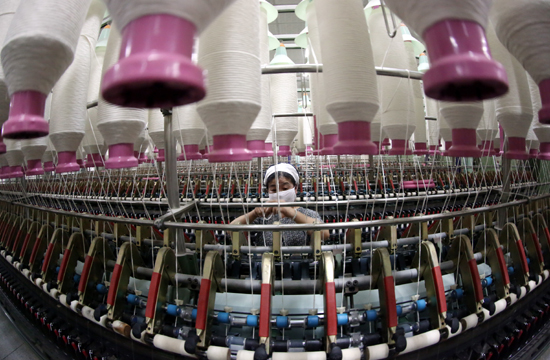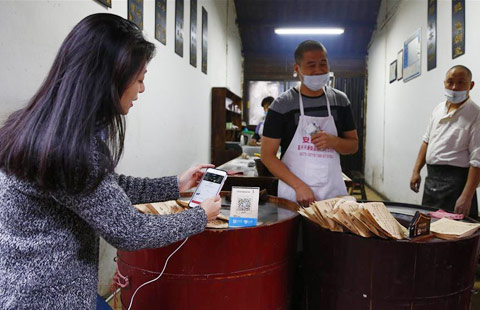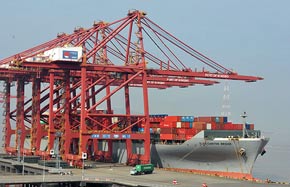Textile exports at 2nd-lowest rate in 20-yr
|
 |
|
A worker at Jiahao Light Textile Co in Jiujiang, Jiangxi province. Sluggish demand and rising production costs have made this year's outlook for Chinese textile exports gloomy. [Zhang Haiyan / For China Daily] |
China's textile exports dipped to their second-lowest level in the past two decades in 2012 amid calls for the sector to focus more on the domestic market, industry leaders said.
Gao Yong, deputy director of China National Textile and Apparel Council, said textile exports grew around 3 percent last year to an estimated $260 billion.
The result represented the second-lowest growth rate since 2009, when the global textile industry was reeling from the outbreak of the global financial crisis.
Gao said the outlook for Chinese textile exports was likely to remain gloomy in 2013.
Sluggish overseas demand, rising production costs and cotton prices had made 2012 a difficult year for the labor-intensive textile sector.
Gao said that the textile industry achieved revenue of 5,224 billion yuan ($840 billion), from January to November 2012, up 11.9 percent year-on-year. The increase is still far lower than the annual average of 20 percent over the past two decades, he said.
The industry's profits in 2012 were expected to reach 250 billion yuan, rising by 3 percent year-on-year.
Rising production costs have taken their toll on the textile industry. In addition, the price gap between imported cotton and expensive domestic cotton has also affected the textile exporters.
China's cotton reserve in 2012 reached 5.22 million tons, three-quarters of the expected cotton output.
It is estimated more than 80 percent of the domestic cotton produced in 2013 will find its way to the national reserve, according to the council's website.
Zhu Beina, director of China Cotton Textile Association, said although the nation's textile industry faced great challenges in 2012, technological and management upgrades meant that many companies were still in fine fettle.
In addition to rising raw material costs, increased labor costs have driven some order to competitors in Southeast Asia.
Industry leaders have urged companies to focus more on the domestic market.
Gao said domestic consumption of textiles and garments grew 18.2 percent between January and November 2012, much higher than overall retail consumption.
"I think it may no longer be convincing to attribute the decline of our industry to 'insufficient domestic demand'," Gao said.
Wang Tiankai, director of China National Textile And Apparel Council, earlier told Economic Daily that export-oriented textile companies in China should focus on the domestic market while overseas demand remains sluggish.
Many trade textile companies set their production targets according to orders rather than the overall market situation. Now with the rise of domestic consumption, knowing how to market in China is a must, he said.
wangzhuoqiong@chinadaily.com.cn
















